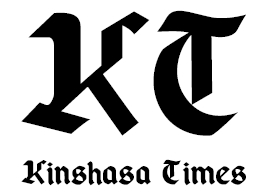As negotiations for the renewal of the mission continue, US Ambassador to the United Nations, Nikki Haley, stated on last Wednesday that UN peacekeepers in the Democratic Republic of the Congo are helping a « corrupt government that is assaulting even its own citizens « .
« The UN peacekeeping mission is mandated to partner with the government, » Haley told the Council on Foreign Relations in New York. [Editor’s note: A non-partisan American think tank, with a mission to analyze US foreign policy]. « In other words, the UN is assisting a government that inflicts criminal acts on its own people. We should have the decency and common sense to put an end to it, « she added.
Ms. Haley’s remarks came two days prior to the expiry of the vote on the renewal of the mandate of the United Nations stabilization mission in DR Congo (MONUSCO) for a budget of $ 1.2 billion.
The Security Council’s confidential negotiations on its renewal take place amid warnings from the United Nations about the risk of violence spreading throughout the country as elections are scheduled to take place prior to the end of 2017.
The United States wants the troop cap to be reduced by a quarter, or 15,000, senior diplomats say. On the UN side, Secretary-General Antonio Guterres would like at least an increase of two additional police units (320 officers); what Washington does not want to hear and would rather maintain the current total of 1,050 police officers.
Adding to the current tension, last week’s discovery by villagers of the bodies of two UN investigators and their Congolese interpreter who had disappeared this month in the province of Kasaï-Central, a region plagued by a violent uprising.
Failure to move forward jeopardizes current progress
The DRC is a rich natural resource country, which gained its independence from the colonial power in 1960 but never experienced a peaceful transition of power. In December, the continuation of President Joseph Kabila at the end of his last term of office raised concerns that the country, which was chronically unstable, could again turn into a civil war.
However, opposition with the ruling coalition and Kabila’s allies signed a fragile agreement on December 31 which provides for the end of President Kabila’s term after elections that must take place by the end of 2017 [But this very agreement is slow to come into place].
« The failure to move forward with the agreement clearly violates the will of the Congolese people and jeopardizes the progress made so far, » said on last Tuesday Mark Toner, spokesman for the US State Department.
« The United States is urging members of the government and opposition leaders to refrain from any statements or actions that could incite violence or unrest, » he added in a statement.


